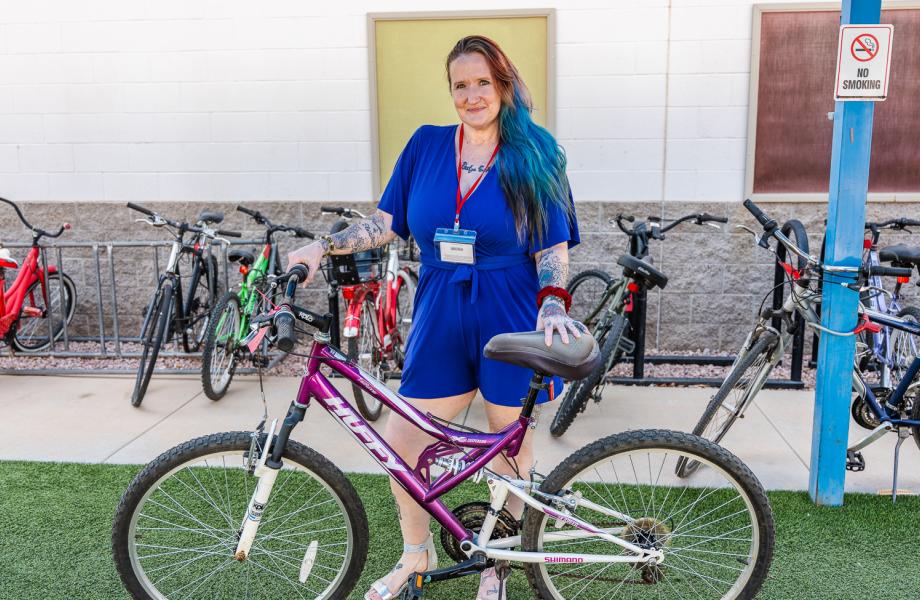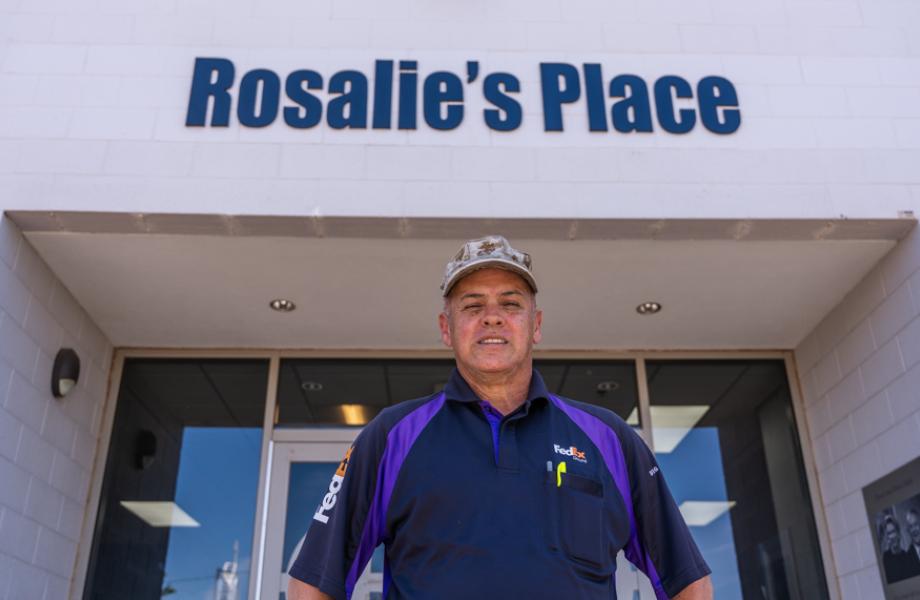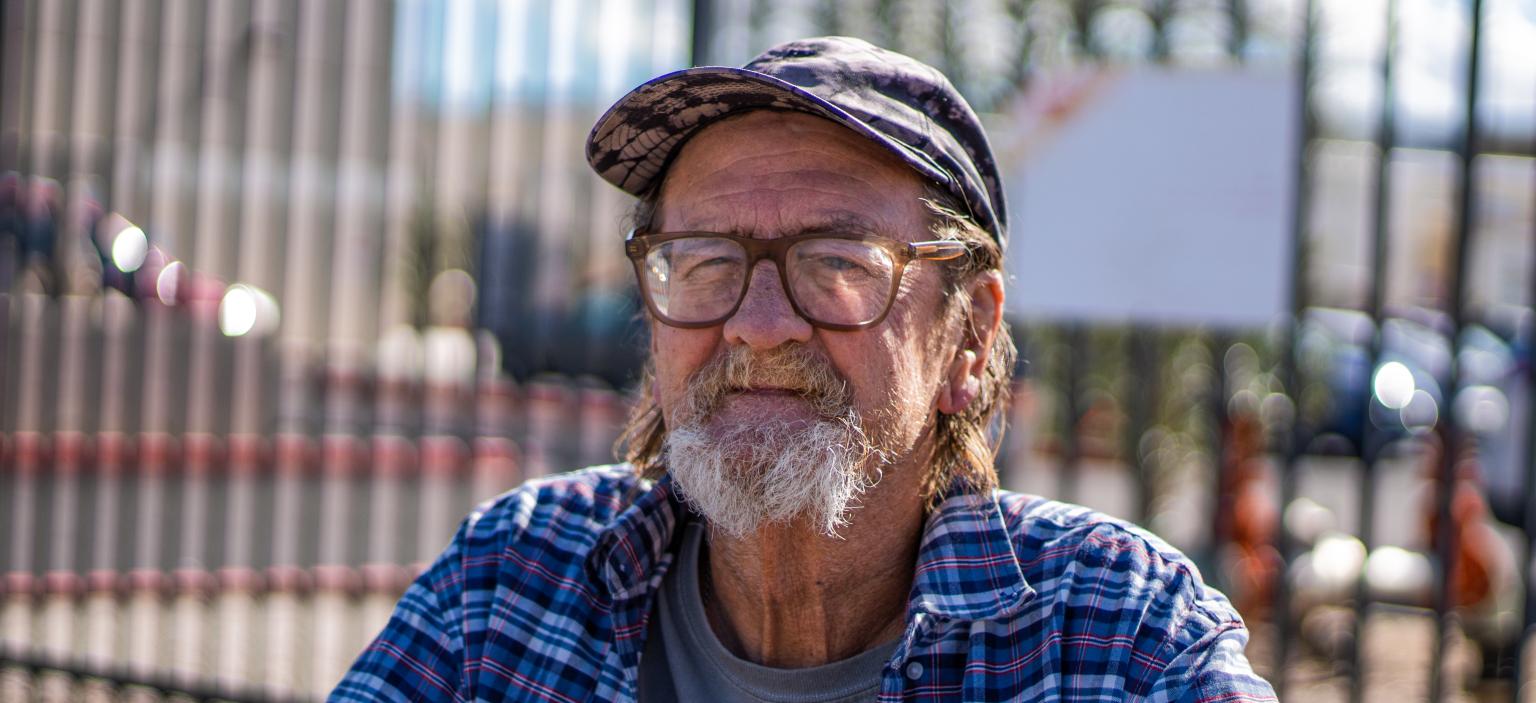
The truth behind the top 5 homelessness stereotypes
Unhoused guests are often portrayed as lazy, mentally ill, criminals, drug addicts and homeless by choice — but these attitudes don’t fully reflect reality. To increase awareness and understanding, St. Vincent de Paul explores these stereotypes below to better understand the real-world circumstances.
We consulted SVdP staff who work directly with unhoused guests daily, to help us unpack these stereotypes and understand why they aren’t always true. We hope this understanding fuels compassion and action in the community.
TOP 5 STEREOTYPES
1. People who are homeless are lazy.
The National Coalition for the Homeless estimates as many as 40-60% of people experiencing homelessness nationwide are employed. However, there are obstacles that unhoused guests need to tackle before finding employment. First, surviving on the streets. Seeking food, water, hygiene supplies, and/or a safe place to sleep, are among their top priorities every day. Consequently, living in survival mode all the time doesn’t allow time to address things beyond basic needs, like employment.
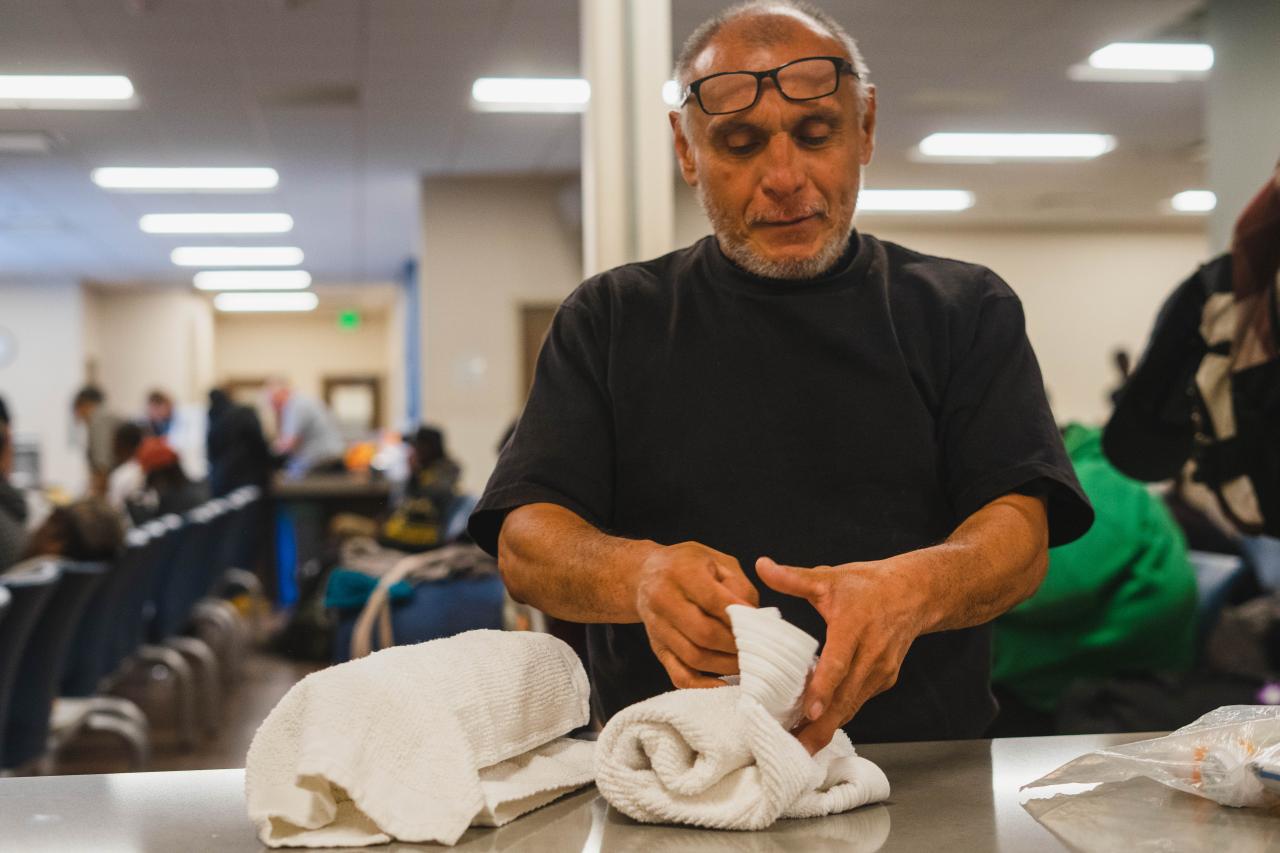
“They're, trying to address their immediate needs, which may or may not look like they're being lazy, but they are working towards addressing some other issues, and they can only address what they can or what they have available for them,” says Krashanda Cleveland, SVdP’s manager of Social Work Services.
Additional complex barriers to finding employment while street living are:
- Not having an address to put on a job application.
- Not having a phone number to schedule a job interview.
- Not having a safe place to rest after work.
- Not having a place to shower to look presentable at a job interview.
- Not having clean clothes, including professional clothes for a job interview.
- Not having money to take the bus or pay for gas to get to a job interview.
- Having a disability.
- Not having a photo ID to present at a job interview.
- Having additional documents stolen, like a social security card, visa or green card on the street
- Being mentally ill.
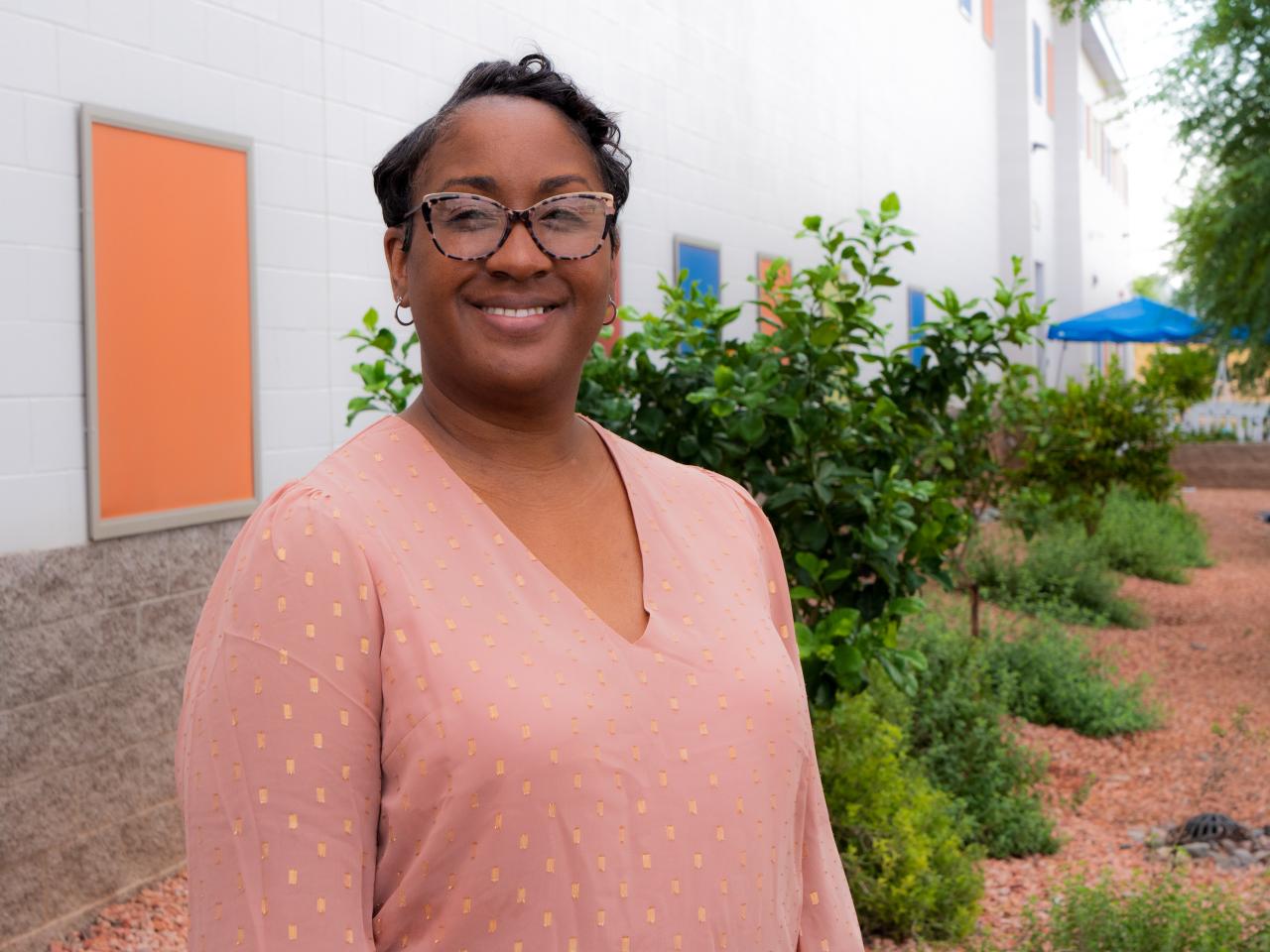
SVdP’s Washington Street Shelter Manager Jennifer Olsen also sees the challenges to success, including employment, that unhoused guests face after developing a pattern of lack of self-worth. Olsen focuses on building rapport with them in the beginning and making them feel like they’re somebody to help them find that motivation and rediscover their role and place in society.
“Once they get motivated, they take baby steps like applying to get their ID or their birth certificate,” says Olsen.
From there, it’s working with that motivation momentum to help them tackle the next step towards employment.
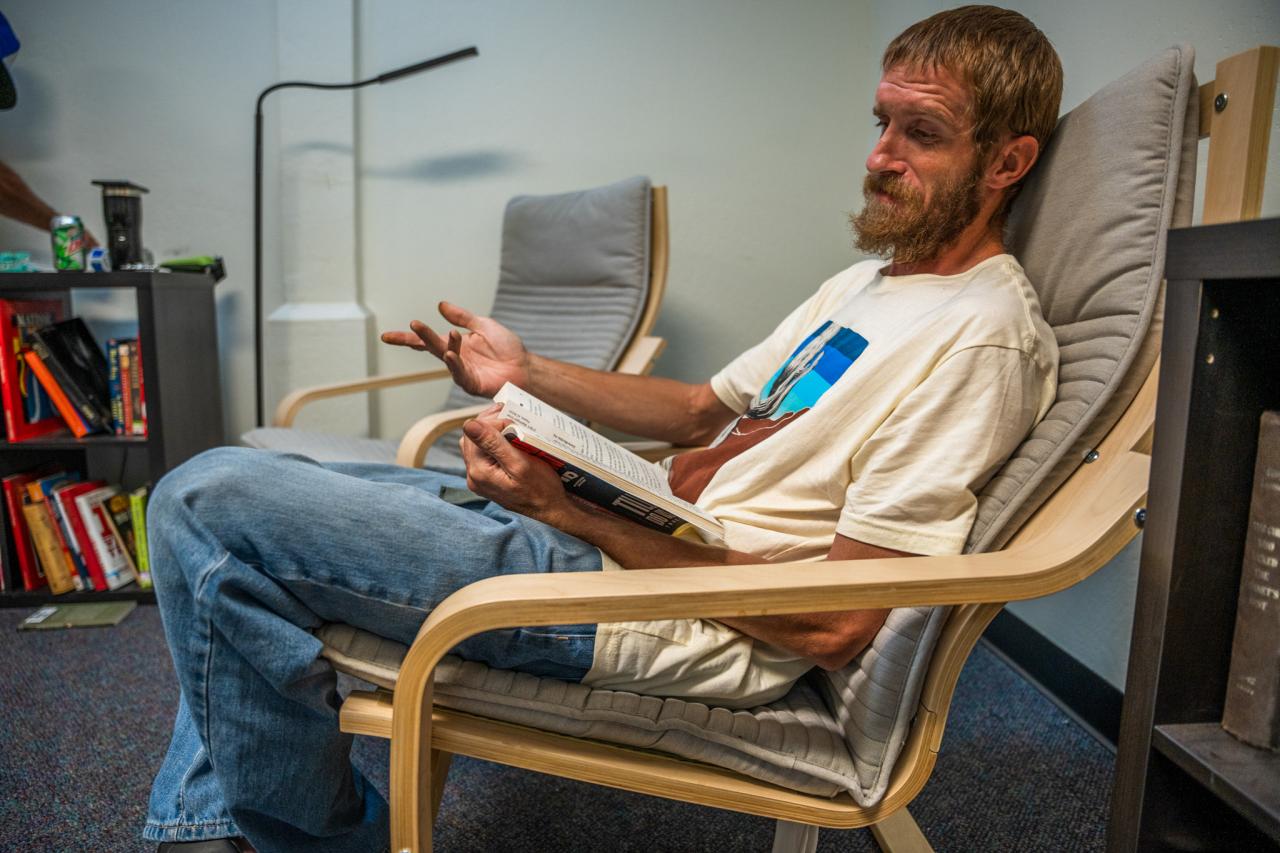
2. People experiencing homelessness all have mental health issues
Not all people experiencing homelessness have mental health issues. According to a 2019 report by André House, a service provider adjacent to downtown’s Human Services Campus, they found that 23% of unsheltered people identified a serious mental illness.
While there’s no denying that significant percentage, that's still less than half and certainly many fewer people than is usually imagined by people perpetuating this stereotype. While there certainly are people experiencing homelessness who struggle with mental health conditions, a mental health condition itself does not keep people on the streets. There are plenty of people who struggle with mental health while in their own homes. It’s the lack of connection to mental health support systems and lack of trust that keeps people with mental health issues on the street.
"Some people won't tell you, even though they know they should be on medication and have been diagnosed with specific mental conditions,” says Jim Baker, SVdP’s director of Security and Dining Rooms. “They’re not comfortable talking about it, so what we try to do is build a level of trust with them, and that relationship starts with the food."

For unhoused guests who do find treatment facilities for their mental health, very often, they don’t feel fully feel supported by their clinic according to Jennifer Olsen, SVdP’s Washington Street shelter manager.
“They’ve constantly been switched navigators or case managers leading to a lack of consistency with their therapies,” Olsen says. “We try to be that bridge in between them and their clinic to help them keep moving forward.”
With compassion and guidance in the right direction, unhoused individuals can get back on their feet even with a mental illness. This was the case for Rebecca Torres, a SVdP guest who has schizoaffective disorder — a mix of schizophrenia with a mood disorder. She became homeless due to her mental condition, but with resilience and the support from the wraparound services she found with SVdP Social Work Services team, she was able to find the housing she had been hoping for despite her condition. Mental health issues don’t have to keep people on the streets. For these reasons, SVdP has also partnered with Family Service Agency, Body & Soul, CTC, and Valle del Sol, to help guests treat and improve their mental illness.
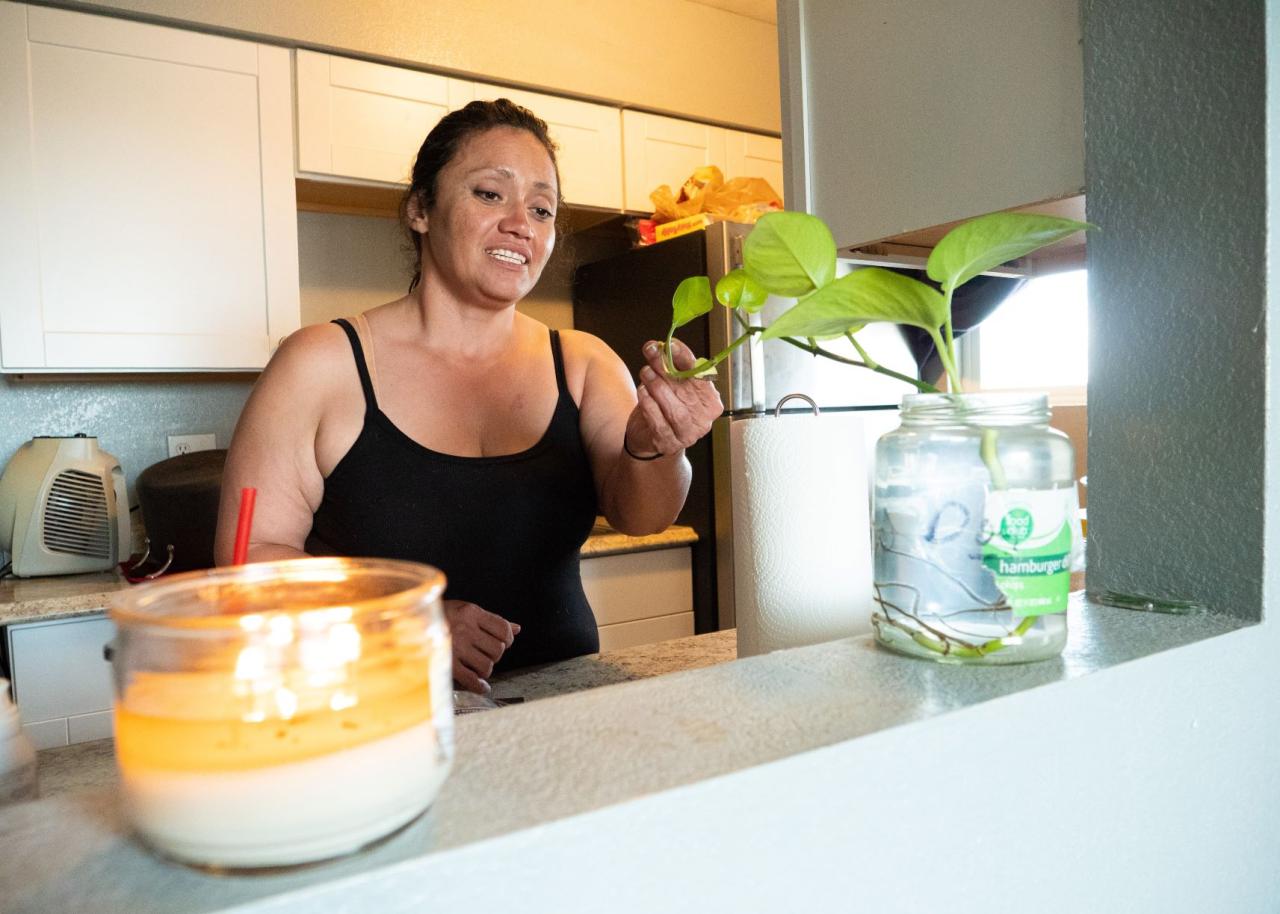
3. All homeless people are criminals.
Nationwide, people experiencing homelessness are 11 times more likely to be arrested than those housed and charged with the same crime. Usually, this crime is a direct result of their homelessness too. They are also more likely to be victims of violence with a currency of 14-21% compared to the general population.
“If they don't have a criminal record they will because they’re going to get citations for trespassing or urban-camping infractions,” says Jim Baker, “A lot of folks end up doing things they would have never done, had they not ended up in the state of homelessness.”
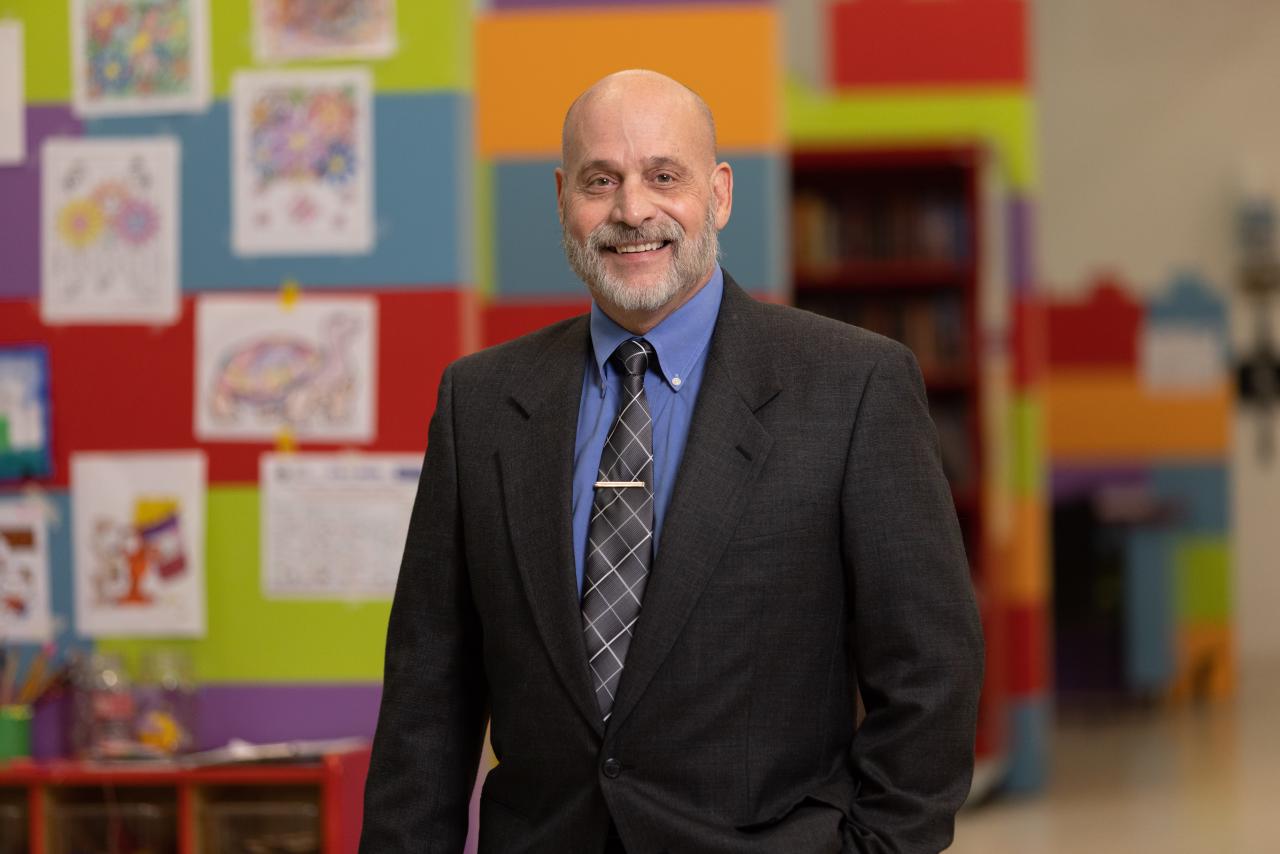
The consequences of a criminal record can create long-lasting setbacks for unhoused guests when it comes to housing, however, it does not impact their ability to get off the streets. By actively putting in the effort to improve their situation and with support from SVdP programs, unhoused guests have been able to get into housing regardless of their background.
That's been the case especially at SVdP's Washington Street shelter, where Jennifer Olsen serves as manager and works directly with unhoused guests, including those with criminal records. With homelessness experience herself, Olsen understands that their situations can get discouraging, which is why she’s there as a support system to help them overcome the hurdles that follow their criminal record and give them hope.
“There are certain jobs that they can't go to. There's certain housing that they can't get into it, so it starts to get discouraging,” says Jennifer Olsen, SVdP's Washington Street shelter manager. “We are here to show them that their situation can be fixed and that there is light at the end of the tunnel for them.”
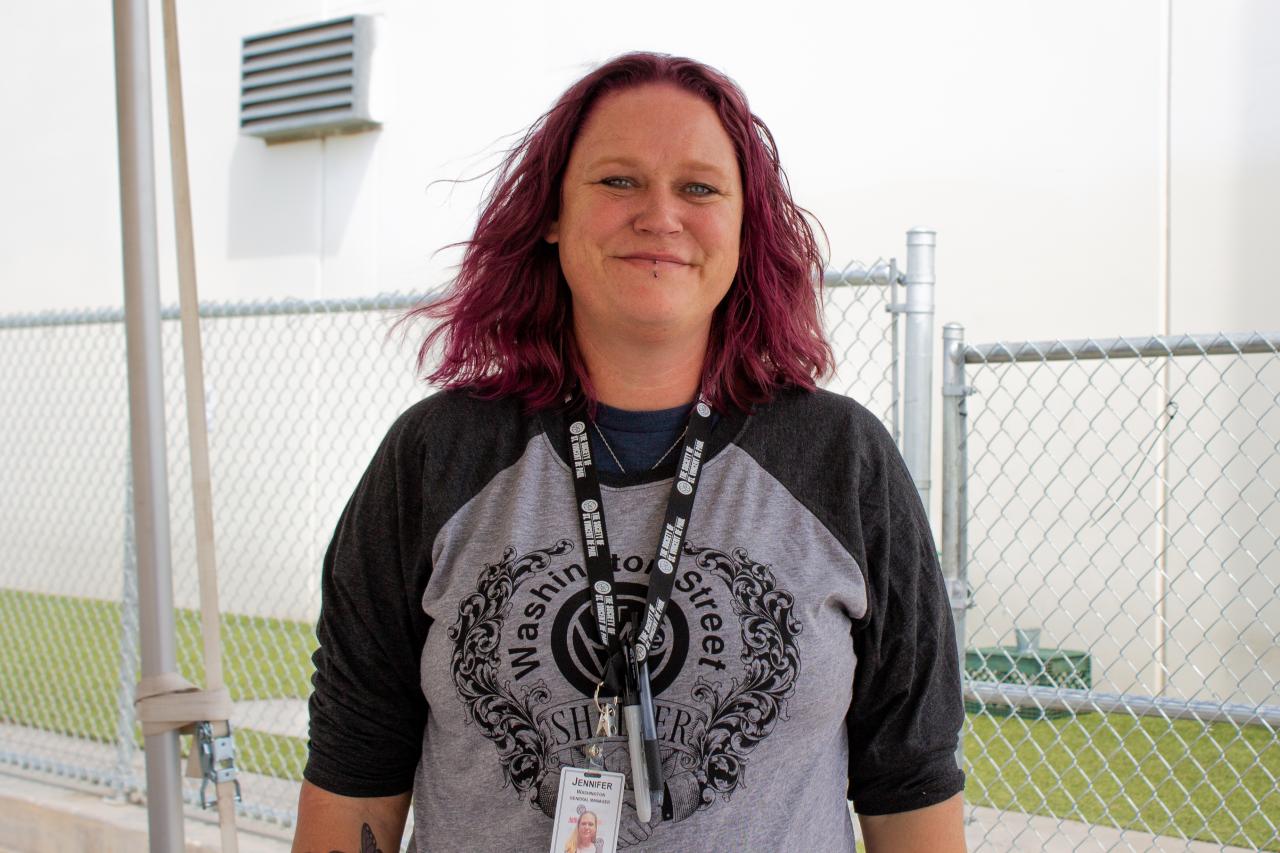
Depending on their charges, SVdP’s social workers can also help refer guests with criminal records to agencies who would be able to work with them through their difficulties. No matter how unique someone’s journey has been that got them into homelessness, SVdP’s social workers are there to help refer them to the resources that will help them get off the streets and back into housing.
4. All homeless people are drug addicts.
According to a 2019 report by André House, 25.7% of people who were experiencing unsheltered homelessness between November 2018 and March 2019 identified a diagnosable substance abuse disorder.
Nevertheless, the streets are a place where substances are widely used, so people who may have never used drugs before suddenly start to use them to cope with their circumstances according to Olsen.
“When they're homeless, their drug addiction is more for survival because they don't feel safe where they're at, so they use to get through their day to day,” Olsen says. “Once we offer them shelter, they're more willing to accept going into treatment because now shelter is their safe space.”
Whatever their story had been that got them into homelessness, that doesn’t mean that they can’t reset their lives. They just can’t do it alone; they need to have support networks that can help them recover. This is what SVdP’s integrated programming is here for. With care and compassion, SVdP social workers have helped hundreds of guests with drug addictions get back into housing through community partnerships and connecting guests to resources for their substance abuse treatment.
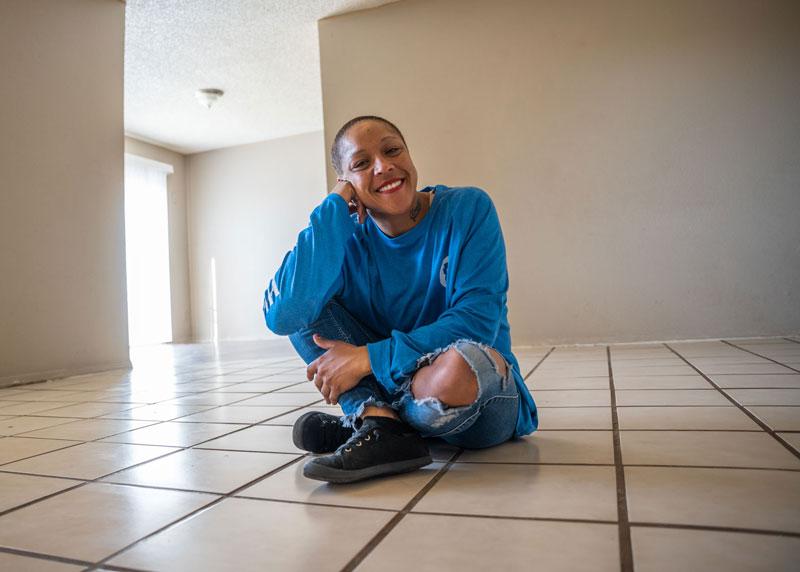
Of the many guests who have been helped is Candice Martin. In the process of battling drug addiction, Candice lost everything she had and eventually ended up on the streets. With the help of SVdP’s Social Work Services team, Candice achieved sobriety and is back into housing.
When given support and compassion, unhoused guests with drug addiction don’t only get off the streets, some also become inspired to help others like them recover. This is what SVdP’s Dining Rooms Manager, Jim Baker, has the pleasure of witnessing during his time working with unhoused guests.
“Once they finally free up, they are so thankful, and some even end up working in industries like ours which makes them much more equipped to help people in those situations,” Baker says. “That gives me hope.”
5. Homeless people are homeless by choice.
St. Vincent de Paul does not believe that people want to live on the street. When we offer people a real, tangible path out of homelessness through our rehousing services, the majority of people jump at the opportunity to better their situation in which they may have previously felt hopeless, alone and defeated.
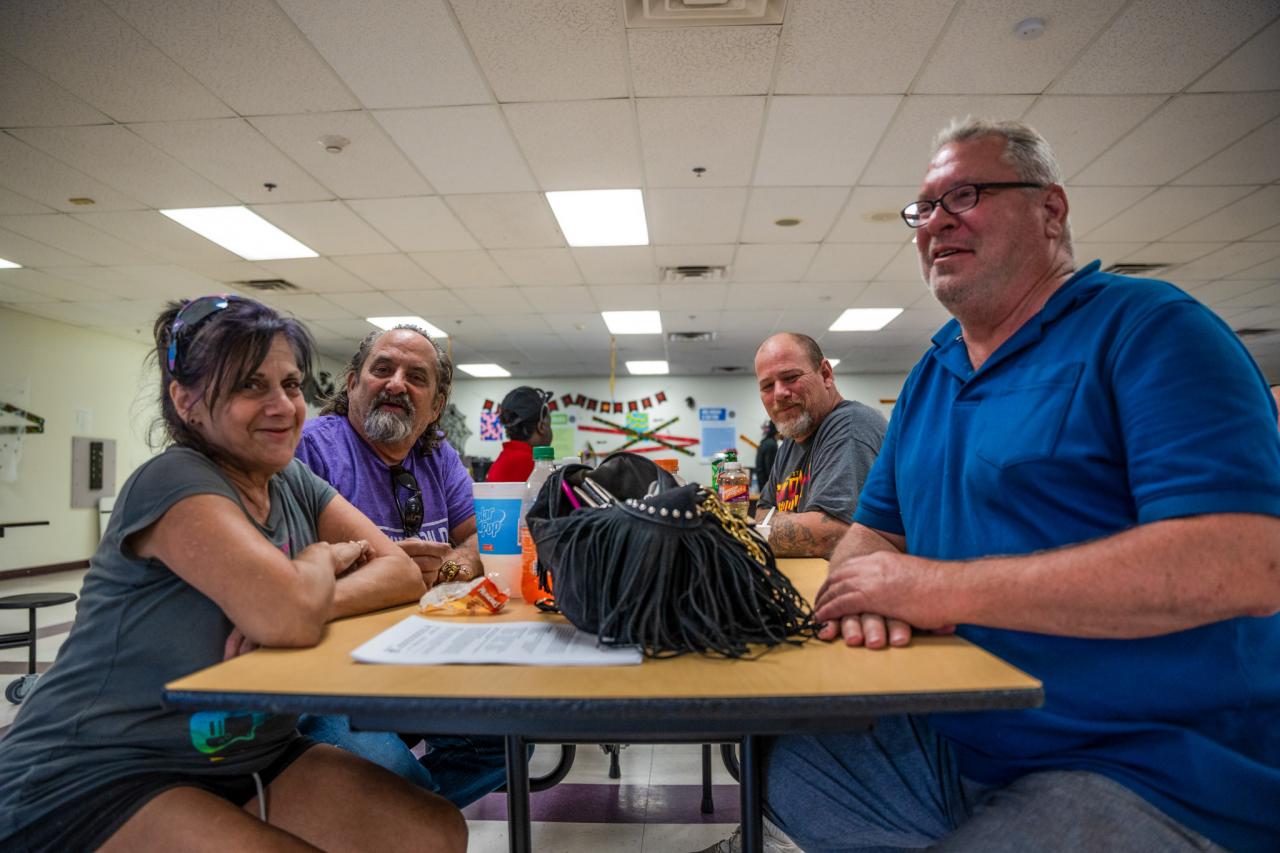
The issues are complex and interwoven that lead people into homelessness. It's rarely a choice. At the core of homelessness is finding a place that people can afford to pay to live in. SVdP recently dug into this issue in an interview with MAG Regional Homelessness Program Manager Katie Gentry, who explains how the Valley's homelessness surged because of a lack of housing that people can afford and offers some solutions to the housing crisis.
Along with the rise in rent and mortgage prices, comes the complicated factor of fixed incomes for unhoused seniors, a challenge seen particularly in SVdP's Ozanam Manor, an interim housing community for unhoused seniors, veterans and adults with disabilities.
“We work with senior guests who have either Social Security retirement or disability where they're getting less than $1,000 per month,” says Julia Matthies, Associate Chief Program Officer who has overseen Ozanam Manor for many years. “Apartments at Phoenix market rate are going to be higher than that which doesn’t leave a lot of money for anything else aside from housing.”
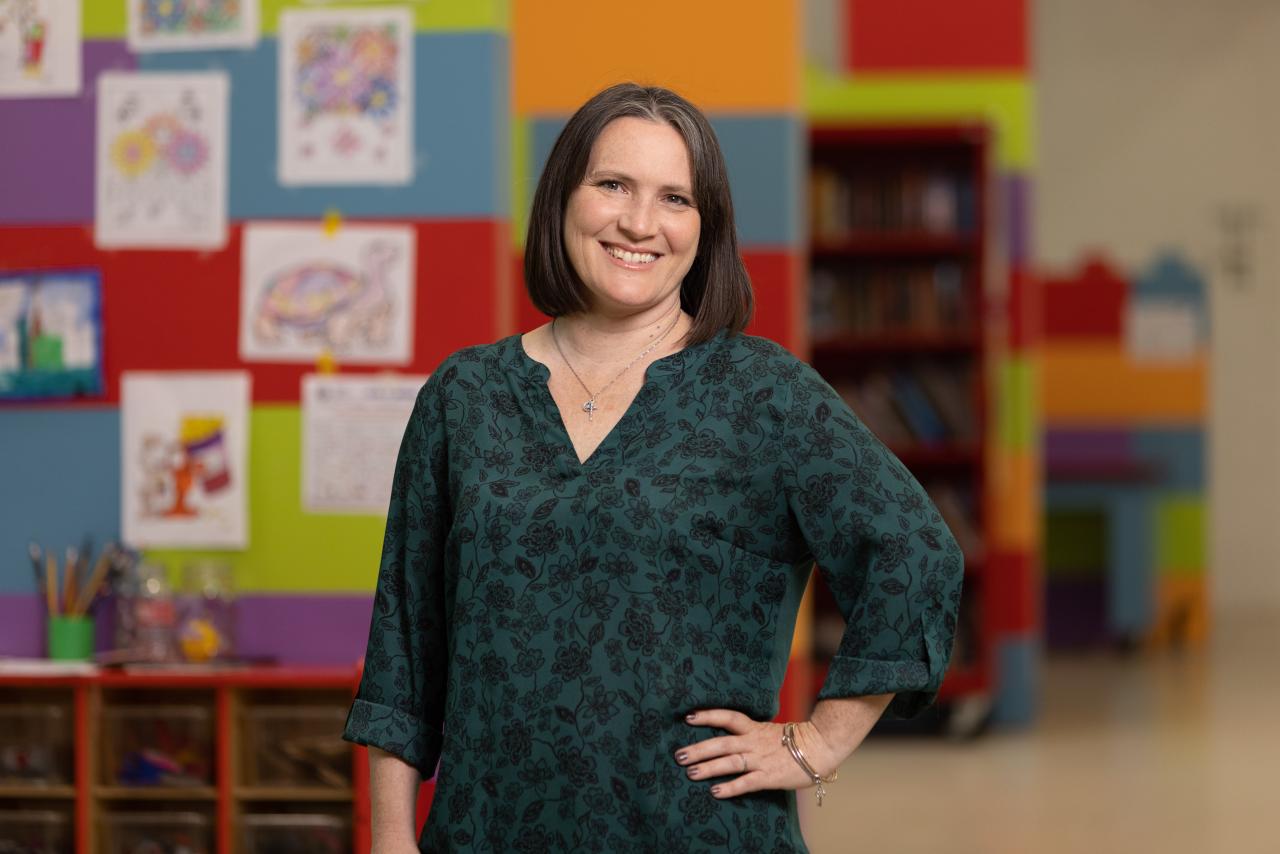
The goal then is to help guests find subsidized housing that they can afford, which means looking at a select number of apartment complexes that have those subsidies built in. According to Matthies, the waitlists for such apartments have grown as the housing market shrinks so it’s not uncommon for there to be one- to two-year waiting lists.
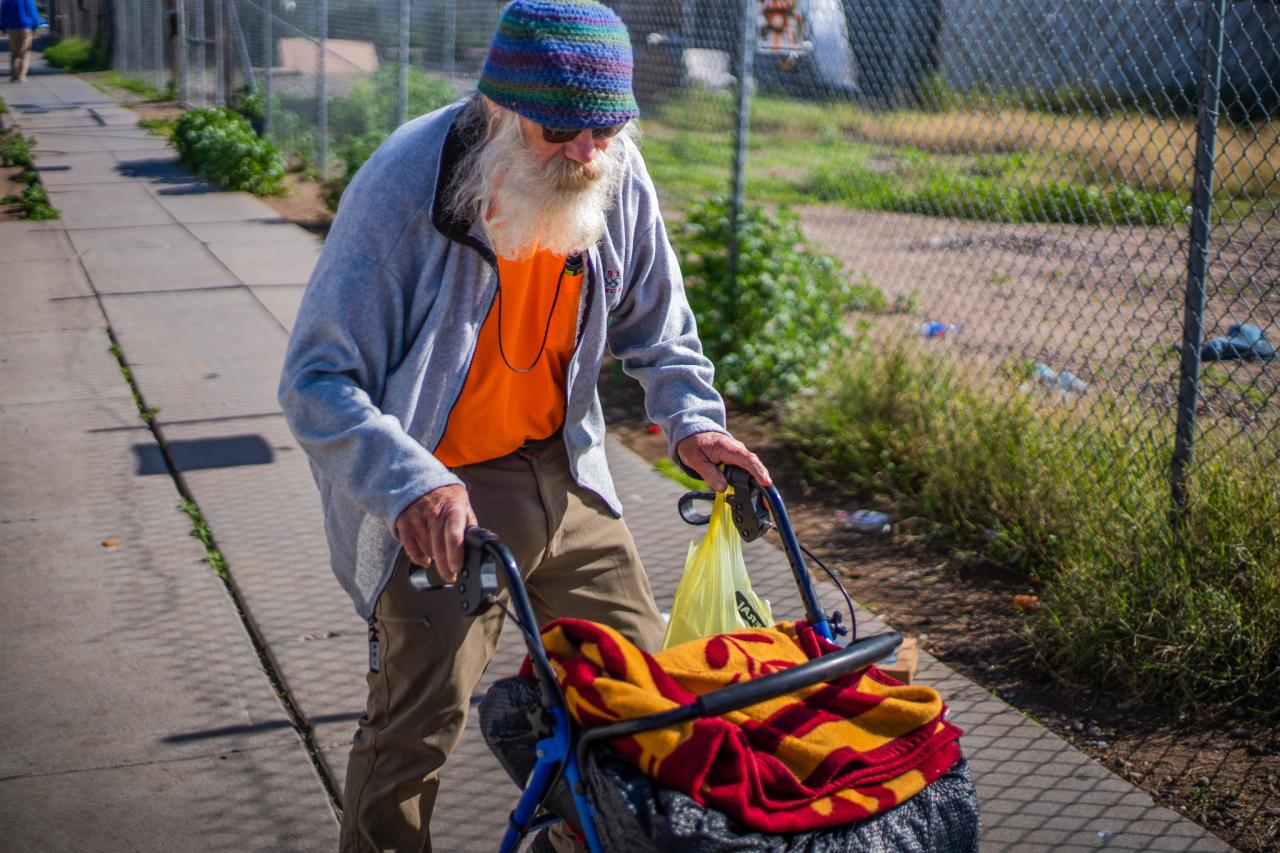
Publicly, Gentry explains that we can make bigger changes in affordable housing by coming together as a community, both publicly and privately.
“We have to start humanizing the people who will occupy the housing, putting faces to narratives so that people are open to new housing being built in their neighborhood,” says Katie Gentry, MAG regional homelessness program manager.
With effort to help prevent vulnerable people from an eviction, SVdP offers homelessness prevention services at its Resource Center. The Homelessness Prevention team there provides bill assistance with rent and utilities to prevent an eviction and homelessness before it happens. It's one of the most effective solutions to helping not exacerbate the growing homelessness crisis.
Homelessness prevention is what kept Veronica Guzman housed and out of homelessness. The program helped her when Veronica's disability check could not cover her rent, utilities, groceries, and medical bills. She was on the edge of being evicted, and SVdP’s homelessness prevention assistance provided her with rent and the resources to find housing that she could afford.
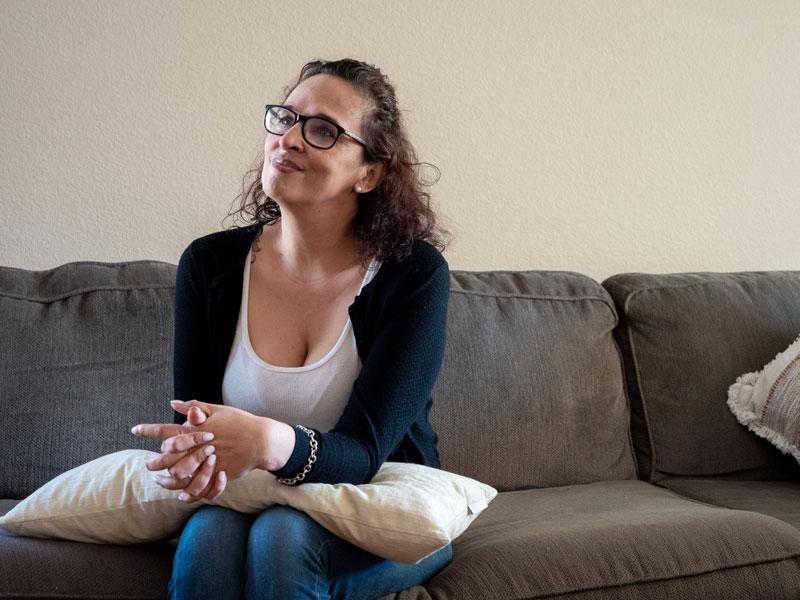
THE TAKEAWAY
When acknowledging stereotypes about homelessness and taking a closer look at the nuance of individual situations, it is evident that behind these generalizations lies a more complicated reality. Homelessness is a complex set of circumstances that affect thousands of Arizonans every day. Starting with assessing our own perceptions and telling the real stories and lived experience of those on the street, we can help shape the way homelessness is perceived and the extent to which we support the efforts and resources that unhoused people actually need to succeed in finding housing.


